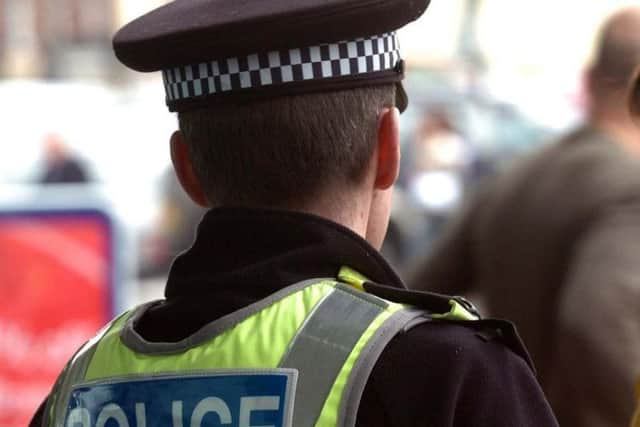Police being 'left to pick up pieces' amid crisis in mental health care, inspectors warn
Stretched forces are responding to tens of thousands of cases that would be better dealt with by other agencies, HM Inspectorate of Constabulary and Fire & Rescue Services (HMICFRS) said.
Officers are often required to step in after more suitable services have gone off duty, the assessment found.
Advertisement
Hide AdAdvertisement
Hide AdThe report noted that the “intolerable burden” comes at a time when police are facing demands in other areas including a heightened terror threat and mounting levels of knife crime.


HM Inspector of Constabulary Zoe Billingham said the inspectors found police responded to people with mental health problems with care and compassion.
“But we cannot expect the police to pick up the pieces of a broken mental health system,” she said
“Over-stretched and all-too-often overwhelmed police officers can’t always respond appropriately, and people in mental health crisis don’t always get the help they need. It is a national crisis which should not be allowed to continue.”
Advertisement
Hide AdAdvertisement
Hide AdMs Billingham said other services “need to stop relying on the 24/7 availability of the police”.
She added: “The police should be the last resort, not the first port of call. We are seeing forces attending less other crimes because they are focusing on mental health-related incidents.”
The Government said it was investing £2bn in mental health services.
A Government spokesperson said: “Police officers do an excellent job protecting those facing mental health problems, in often difficult and distressing circumstances, and it is pleasing to see this report finds police leadership in this area to be strong.”
Advertisement
Hide AdAdvertisement
Hide AdBut John Apter, chairman of the Police Federation, which represents rank-and-file officers, said Ms Billingham’s frank assessment “reflects the reality of what we are experiencing every day”.
He said: “It is not right for anyone – officers or the public – that the police should be responsible for the safety and welfare of people that other professionals would be better placed to deal with.
“We are police officers, not social workers or medical experts.”
The inspectors’ report recognised good mental health support work taking place in the North Yorkshire Police, South Yorkshire Police and Humberside Police force areas, among others.
Advertisement
Hide AdAdvertisement
Hide AdHumberside Police was highlighted for having a mental health practitioner from the charity Mind in its control room three times a week.
South Yorkshire Police was mentioned for the supervision given to its call handling staff to check that their tone, response and advice is consistent.
Meanwhile, North Yorkshire Police was praised for having developed an academic collaboration on policing and mental health with the University of York and others.
Superintendent Allan Wescott, of North Yorkshire Police, said: “Mental health is a frequent factor in many incidents that the police are called to, whether a person is a victim of crime, a witness, or someone who is calling us as a cry for help.
Advertisement
Hide AdAdvertisement
Hide Ad“When a person is in mental distress or crisis, it is absolutely essential that the most vulnerable people in our communities receive specialist help and support from mental health professionals. We work very closely with partner agencies to improve our response to these incidents.”